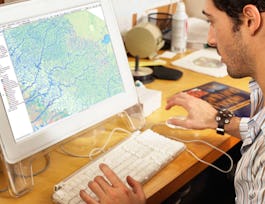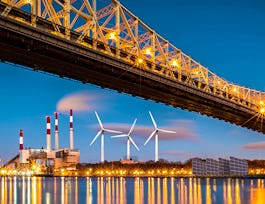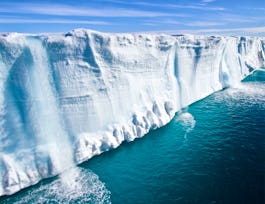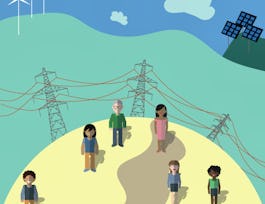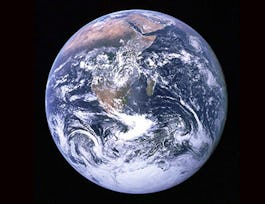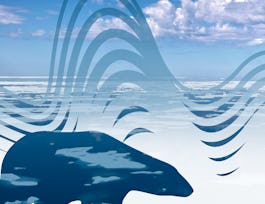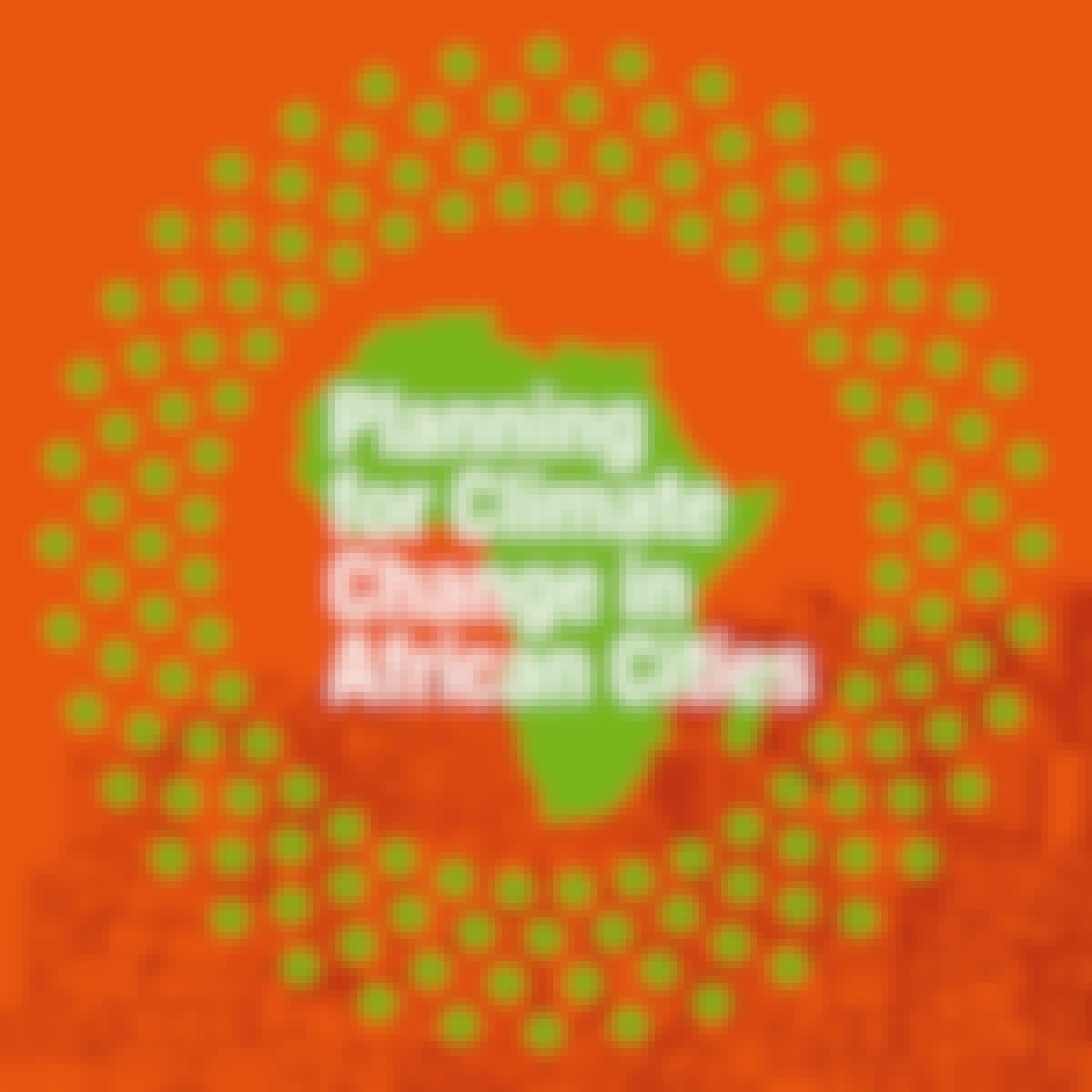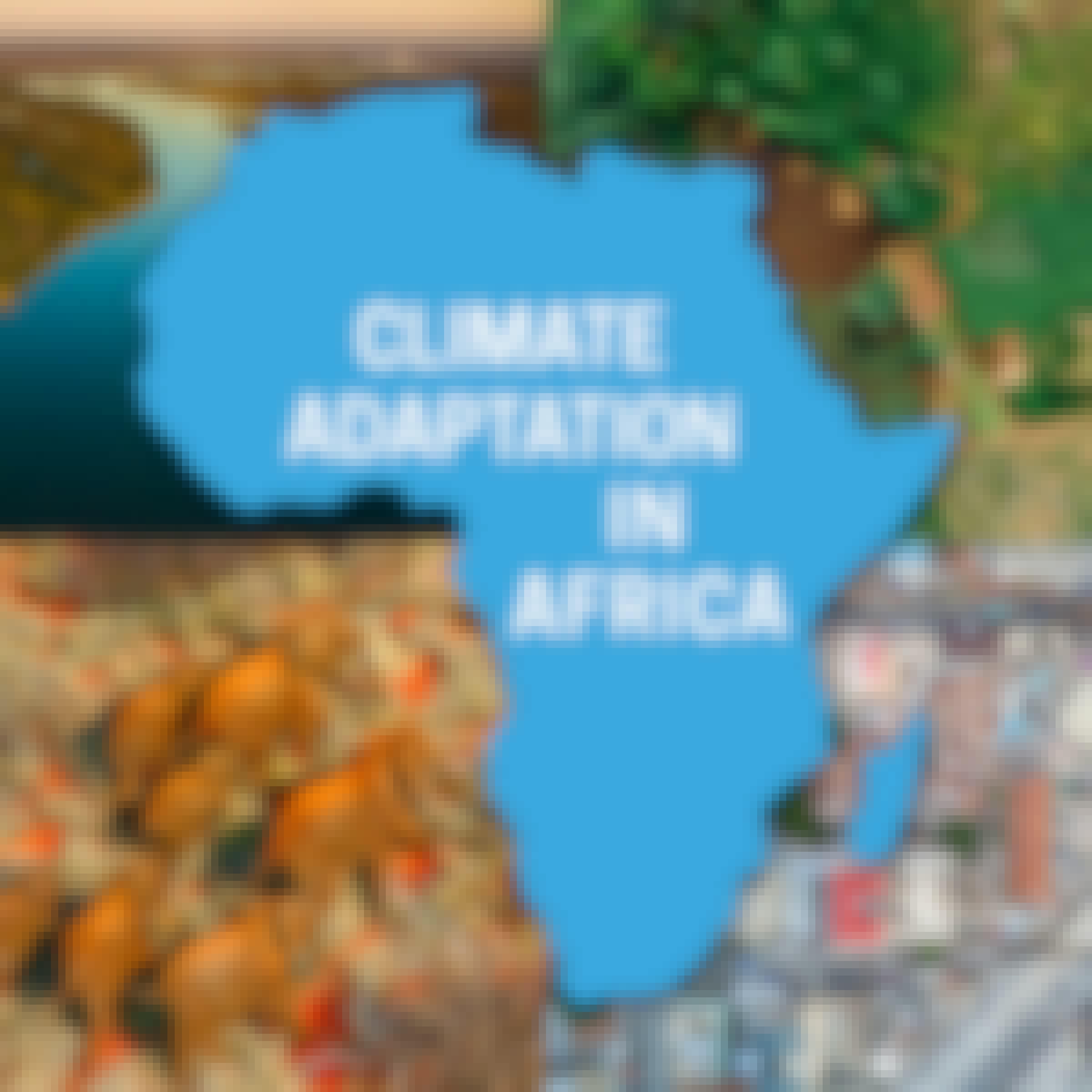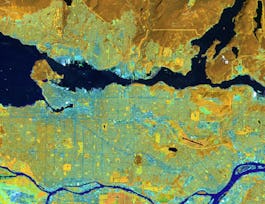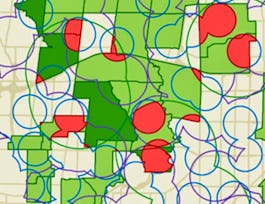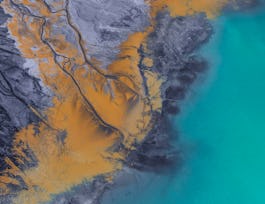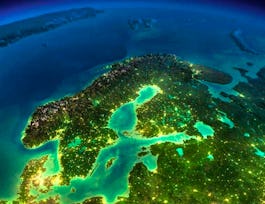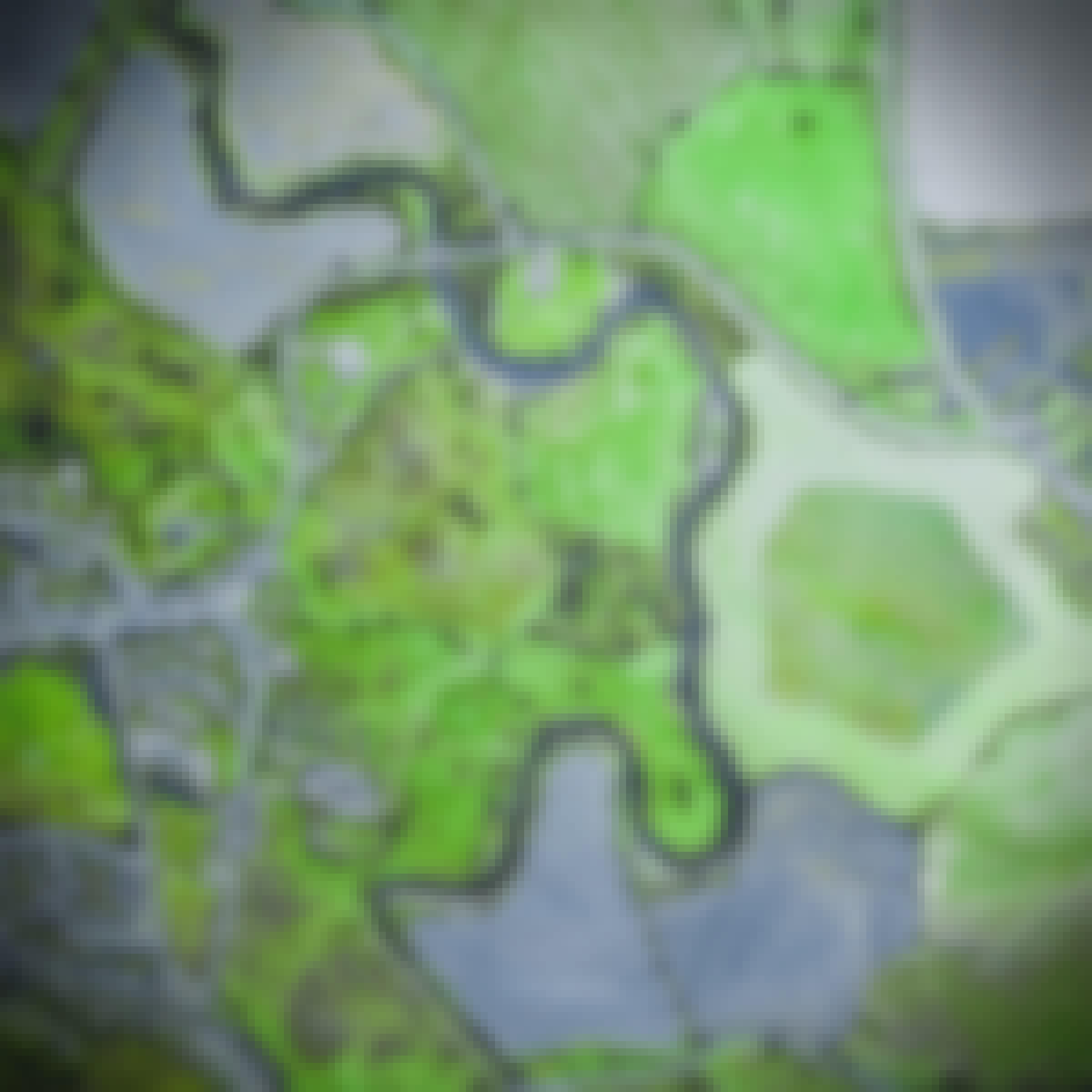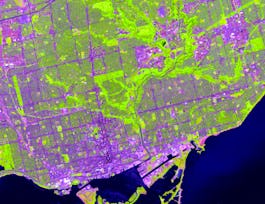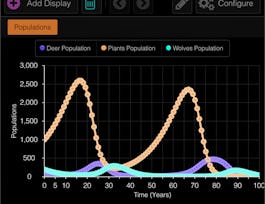- Explore
- Physical Science and Engineering
- Environmental Science and Sustainability
Environmental Science and Sustainability
Earn Your Degree
Most Popular Courses
Climate Change
Top Rated Courses
Towards Sustainability
Most Popular Certificates
Recently Launched Guided Projects
Frequently Asked Questions about Environmental Science and Sustainability
Environmental science is the study of how the various physical, biological, chemical, and meteorological factors interact within a given environment, as well as how these factors impact the organisms living within it - including human beings. It can be easy to forget in our increasingly modern, technology-mediated world, but balancing human needs with the preservation of a sustainable natural environment is incredibly important to our health, our psychological well-being, and the day-to-day functioning of the global economy.
On a local scale, having clean air to breathe and water to drink is something we take for granted, but the safety of these essential resources can be threatened by particulate emissions from factories and diesel trucks, as well as toxic pollution from chemical plants. And on a planetary scale, the extreme weather and natural disasters caused by global warming threaten to upend many of the agricultural and livestock systems we depend on for food, as well as coastal real estate markets that are valued at $1 trillion in the United States alone.
Because environmental science connects the dots between the myriad human and natural factors interacting in the environment, it is an interdisciplinary subject that can be studied from many different angles. Experts from the physical sciences such as biology and chemistry offer essential knowledge of the ways in which different pollutants affect human and animal health. At the same time, the background of social scientists such as anthropologists and economists can provide critical inputs into how various human systems respond to environmental pressures, as well as how these systems can contribute to environmental sustainability.
Environmental science is also obviously important if your primary concern is the non-human world. By providing guidance on how to preserve the proper functioning of natural ecosystems, it helps to ensure sustainable habitats for the biodiverse flora and fauna of our world. Thus, environmental science is a vital field of study whether you want to protect the natural environment from being damaged by human activities or protect the human world from risks in the environment.
Because environmental science studies the interactions between the human and natural worlds, it is an inherently interdisciplinary subject that offers pathways to a wide range of careers. A background in environmental science can help professionals bring an environmental lens to bear on their existing role, or it can lead to jobs focused entirely on this area of study.
If you are pursuing a career in law and want to focus on cases establishing culpability for the health impacts of air or water pollution, or want to work on the development of environmental laws and regulations, an environmental science background can help you become an environmental lawyer. If you’re an engineer responsible for the design and construction of buildings, factories, or power plants, a background in environmental science can help you become an environmental engineer capable of ensuring these facilities meet all applicable pollution standards.
On the other hand, if you love animals, a background in environmental science can be a boon to careers as a conservation scientist or a zoologist, allowing you to better understand the impacts of various environmental factors on different species in an ecosystem. And if your primary passion is the environment itself, you can become an environmental scientist responsible for analyzing the health risks from air, water, soil, or even food samples and informing businesses and governments of any hazards. You can also specialize in a narrower area of environmental science, such as hydrologists who focus on issues with water quality.
Environmental science is a discipline that crosses boundaries, which makes Coursera and its incredibly wide range of online courses a great fit for building your skills in any area of this field. If you want to develop your scientific foundations, you can take courses in environmental studies, geography, geology, oceanography, and more. Or, if you want to delve into more applied areas, you can learn about environmental economics, agriculture, renewable energy, and solar energy.
No matter what your area of interest in environmental science and sustainability, Coursera lets you learn from top-ranked schools like Columbia University, the University of Illinois at Urbana-Champaign, and Rice University. You won’t sacrifice the quality of your education, and you’ll be able to pursue it on a flexible schedule and at a lower cost than on-campus versions of the same courses.
People best suited for jobs in environmental science and sustainability are deeply concerned about environmental problems across the globe and want to be part of the solution. For success in this field, it helps to be genuinely curious about the world. If you're involved in an environmental science or sustainability role, you might be taking samples one minute or writing a paper the next, so flexibility is equally important. More traits that help with these types of roles include an open mind, a strong work ethic, good problem-solving skills, and the ability to work well alone and in groups.
With a background in environmental science and sustainability, you can take the obvious route and opt to become an environmental scientist. This is a person who collects data and takes air, water, and soil samples to identify and analyze environmental threats. If you want to focus on the sustainability side, you can become a sustainability consultant, someone who teaches businesses how to be sustainable in the delivery of goods and services. You can choose to be an environmental geologist, a person who uses geological principles to solve problems identified by environmental scientists, or an environmental engineer. This is someone who uses engineering principles for the same purpose. If you're passionate about the law, you can become an environmental lawyer, and if you want to focus on a certain aspect of environmental science, you can embark on a career as an environmental biologist.
With an environmental science and sustainability background, you can work for a city, county, or state government or the federal government. You can also go to work for a college or university, a law firm, an engineering firm, a non-profit or private corporation, or a company that sells consumer goods.
If you're interested in studying about the earth, good topics that relate to environmental science and sustainability include geoscience and hydrology. If you like the idea of working in a laboratory, then microbiology, biochemistry, and biophysics make excellent study topics. If you love animals, you can study wildlife biology or zoology, and if you're drawn to trees and plants, you might want to study forestry or conservation science. More topics related to environmental science and sustainability include ecology, oceanography, and environmental policy.
Online Environmental Science and Sustainability courses offer a convenient and flexible way to enhance your existing knowledge or learn new Environmental Science and Sustainability skills. With a wide range of Environmental Science and Sustainability classes, you can conveniently learn at your own pace to advance your Environmental Science and Sustainability career.
When looking to enhance your workforce's skills in Environmental Science and Sustainability, it's crucial to select a course that aligns with their current abilities and learning objectives. Our Skills Dashboard is an invaluable tool for identifying skill gaps and choosing the most appropriate course for effective upskilling. For a comprehensive understanding of how our courses can benefit your employees, explore the enterprise solutions we offer. Discover more about our tailored programs at Coursera for Business here.











